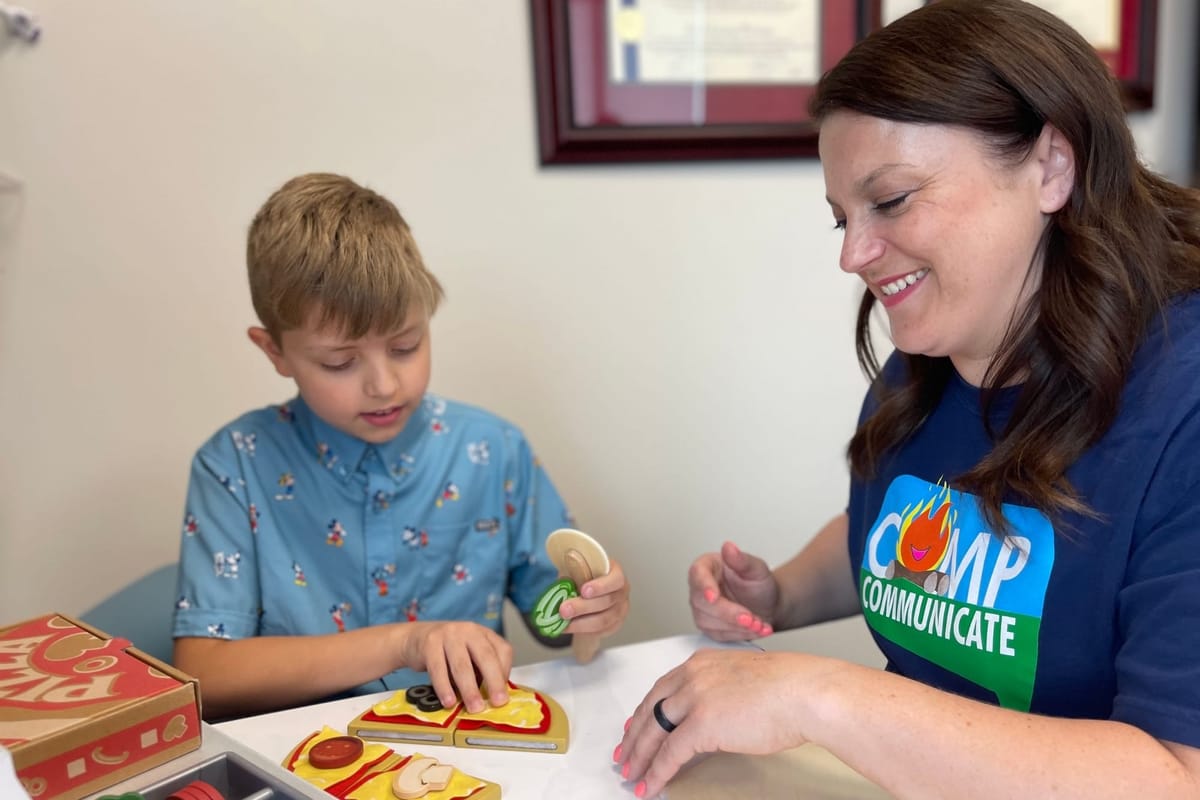
Speech Pathway, a locally owned full-service speech therapy clinic, is rapidly gaining recognition as one of the most sought-after clinics nationwide. With a personalized and cutting-edge approach, coupled with a steadfast commitment to care and compassion, Speech Pathway stands out as one of a kind. Emily Hathaway founded the clinic before learning her son was autistic, and it was through her own personal journey to find support for him that she understood the need for a clinic that prioritizes both providing therapy and building human connection.
Under the nurturing guidance of Emily and her husband, Kent, Speech Pathway is more than a speech therapy clinic. It is a place where children receive the care, understanding and support they need to thrive. Beyond simply therapy, Speech Pathway’s mission is about supporting and enhancing each child’s success and quality of life.

Speech Pathway is helping hundreds of families, yet many people in our community are not aware of its work. Tell us about Speech Pathway and the work you do.
At Speech Pathway, we offer personalized speech therapy services, specialized feeding therapy and Applied Behavioral Analysis (ABA). Our team of caring, licensed professionals helps build the skills that allow our patients to have better social interactions, independence, stronger communication and an improved quality of life.
As a family-owned clinic deeply connected to the community, we understand the importance of building strong relationships and trust with our clients and their families. We collaborate closely with local schools and healthcare professionals, ensuring a comprehensive approach to treatment. At Speech Pathway, we don’t just provide therapy; we create a nurturing and supportive environment where our clients feel cared for and inspired to thrive.
Kent, what inspired the start of Speech Pathway?
Emily is a determined and ambitious woman who found herself inspired by the unwavering strength and compassion of her mother. Witnessing her mother’s tireless dedication to helping others … she developed a deep admiration for serving others. As she embarked on her own career as a speech-language pathologist, she encountered another influential figure; a supportive and encouraging boss who recognized her potential and nurtured her talents. Under their mentorship, and combined inspiration of her mother’s compassion and her boss’ guidance, Emily’s dream of establishing her own clinic began to take shape.
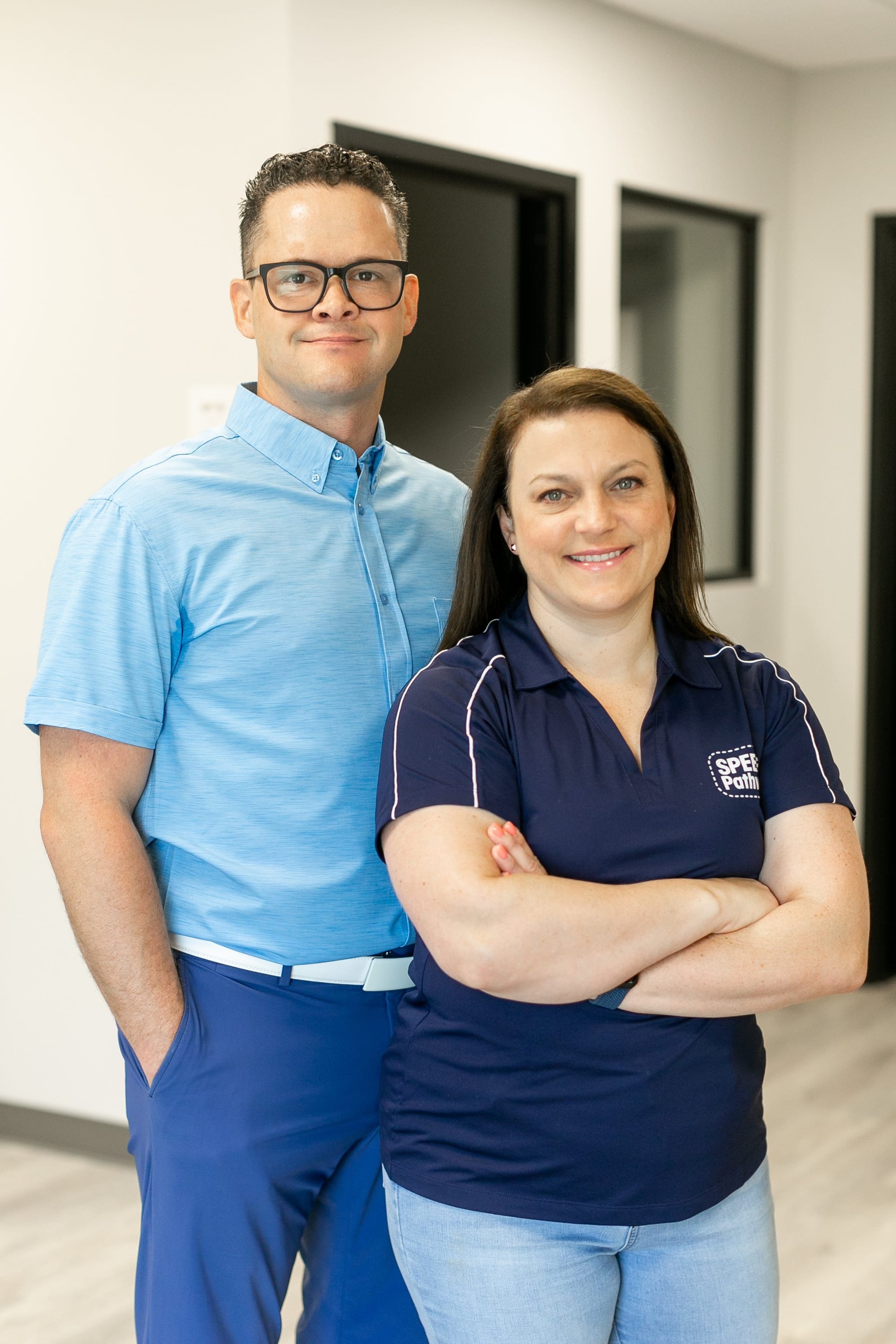
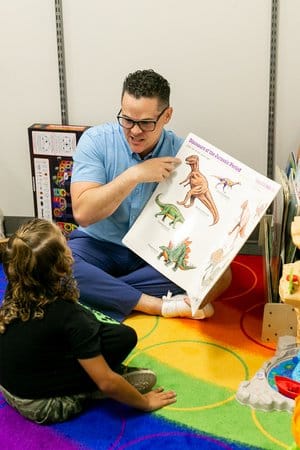
What do you consider to be Speech Pathway’s “secret sauce?” What makes it different from other organizations?
At the heart of this clinic lies a genuine commitment to care and compassion, thanks to our family-owned and -operated nature. Our second child is autistic. We vividly remember the struggle at the beginning of that journey. Our deep-rooted belief in the power of human connection and unwavering dedication to improving his life set the foundation for our exceptional patient experience. Speech Pathway is operated by a family like yours, for families like ours.
As a married couple that operates a business together, what are some of the things you do to make working, living and parenting together succeed?
You must establish clear boundaries between your personal and professional lives. Over the years, we have learned through error that sustaining our marriage has come from open communication, clear boundaries, respect for each other’s expertise, divided responsibilities and fostering a work-life balance.
We take turns feeling guilty for being wrapped up in work while the other is with the kids. It is crucial to find a work-free zone where no work takes place, like a specific room or a couch, a bed, whatever. Avoid letting work discussions dominate your personal time, as it can burn one of you out and really strain your marriage. If it is not on the calendar, it doesn’t happen, so we do our best to schedule date night and a board game once a week.
You have a thriving company culture; tell us about your culture and what you have done to build and protect it.
Hire for culture, not talent. We look for people who will fit in well and have the same vision that we do. We are always on the lookout for someone we want to invest in, not just do the job.
Emily and I serve our people first and invest in their future, not ours. We give our best to the staff so they can give their best to the families. I also think because we serve families like our own, it makes a difference in our culture. We never set out to be the best clinic for pediatric speech and ABA; we just set out to have the best people on our team.
Our interview process is very transparent. We are honest when interviewing about the expectations of the role. We encourage everyone to fail quickly, fail often and talk about it.
Everyone masters the first two pretty quickly — and with some effort we learn to discuss our errors openly and everyone is better for it. Never keep a mistake to yourself. There is always someone else who can learn from it.
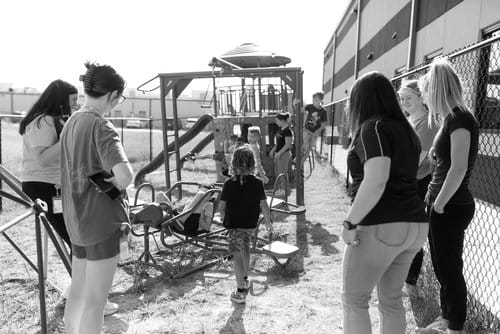

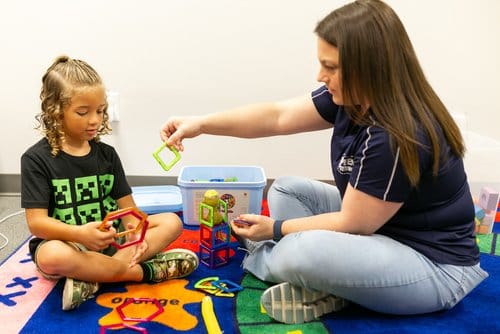
Kent, I know you have a master’s degree in behavior analysis and organizational behavior management. How has that translated into your work at Speech Pathway?
Behavior science has been around a long time, and its application is mostly known for working with individuals with challenging behavior. Organizational Behavior Management (OBM) is a field that focuses on the application of behavioral principles to improve workplace performance and productivity.
The research is clear that the more we are encouraged, the more likely we are to continue doing the things we are encouraged for. At Speech Pathway, we do our best to remind every employee about the positive impact they have in the lives of their clients. There are no generic “You’re doing a great job” comments. It sounds more like, “This mother heard their child say ‘I love you’ for the first time and you made that happen. You changed two lives today, a child and a mother. YOU did that.”
Emily, many owners struggle with being a producer and a leader. How do you balance those two areas of focus?
This is definitely one of the hardest parts of my job. At my heart, I am a clinician, and I truly love speech therapy and intervention. But with a staff of more than 35, leadership is my primary role. It’s important that I ensure our team is fully supported so they can do their best. I still have the privilege of seeing a few clients, and I do actively participate in our intense summer speech camps, so I am able to fill my cup.
The leadership aspect of my job is ever-changing … initially I was the only one … so I was just leading myself and guiding families. As we grew, my job shifted to leading more and more clinicians. At this point, it has shifted again to where I am now leading other leaders so that they can lead and guide clinicians and families. It’s definitely a challenge and never boring! And I am blessed to have an incredible team of passionate people who share our vision and believe in our mission.
I know you run camps that have been highly sought after by the families you serve; can you tell us about the camps and what makes them so desired?
Eight years ago we seemed to have an influx of patients with apraxia of speech. Our staff diligently researched this disorder and the evidence supported frequent, early and intense intervention, but this level of care wasn’t available anywhere in our community and actually very few places in the country. Our community had a need and we felt called to help. This is our 8th summer of Camp Communicate, which has evolved into three programs; Intense Academy, Speech Spot and Kid Connect. Families travel from all over the U.S. (and even a few international campers) to spend a couple of weeks with us. Many families have returned for multiple years.
Where do you see Speech Pathway in 5 years?
Our five-year vision isn’t any different than our current one: To be a transformative force in speech pathology and ABA therapy for children. To continue to decrease frustration in families and children by unlocking the power of communication. That’s all we’ve ever done, and it’s worked for us so far.
We all enjoy the different luxuries life has to offer. Tell us a little about what you consider your favorite “luxiere” in life.
Kent: Personally, it’s going to be sleeping in. At work, it’s hearing the echo of children’s laughter down the hall.
Emily: Are we talking personally here, or related to the clinic? Personally, my favorite luxury would be vacations to Disney. Clinically speaking, our “luxury” items are definitely our facility and its amenities like our playground, sensory gym, thematic pretend play area, feeding therapy kitchen and group spaces. •
Kati Hanna, a seasoned partner at The Mettise Group, has a proven track record with over two decades of consulting services to growth stage businesses. Through her expert coaching, consulting and leadership development strategies, she has made a significant and positive impact on hundreds of organizations, and has earned a well-deserved reputation as a trusted and valued advisor.

